
De La Cruz goes for cycle and Votto hits 2 clutch homers as streaking Reds stop Braves 11-10
Dazzling rookie Elly De La Cruz hit for the cycle, Joey Votto launched tying and go-ahead homers and the Cincinnati Reds extended their winning streak to 12 games with an 11-10 victory over the Atlanta Braves
2023-06-24 10:46
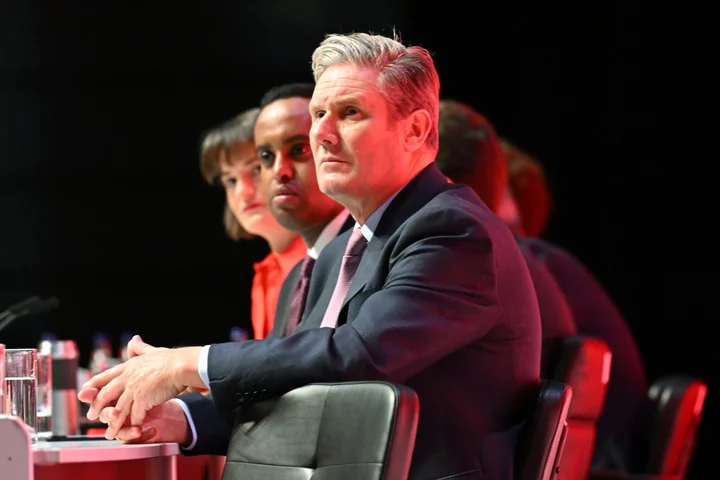
Starmer Prepares Labour for UK General Election as Soon as May
Keir Starmer said his Labour Party is preparing for a UK general election as soon as May 2024,
2023-10-09 19:29
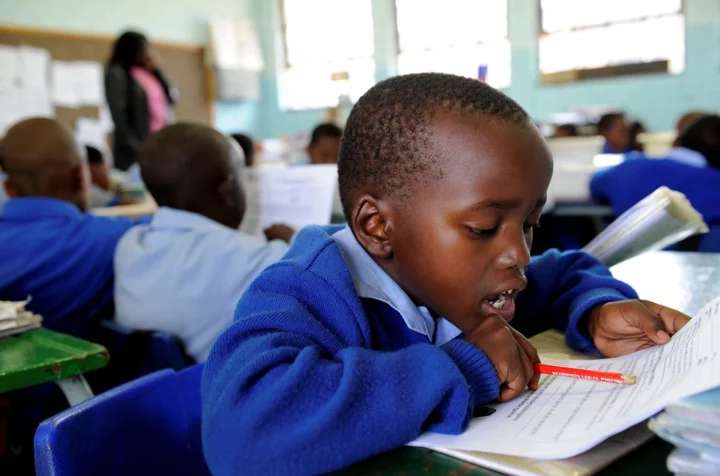
Bela bill: South Africans face jail if children not in school
The education reform bill has come under fire as opposing parties say it is a "school capture".
2023-10-27 22:48
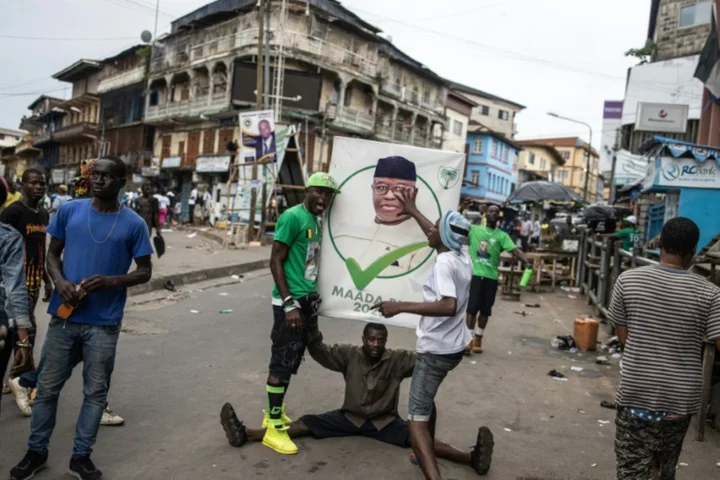
Calm in Sierra Leone despite contested election outcome
The streets of Sierra Leone's capital were quiet on Wednesday, a day after President Julius Maada Bio was sworn in for a second term following an election his main...
2023-06-28 20:56

What women should do if they experience violence online
More than one in 10 women and girls in the UK’s four nations has been a victim of online violence, new research has found. Online violence can includes abuse, unwanted sexual remarks, trolling, threats, and non-consensual sharing of intimate messages and photos. The online YouGov survey, said to be the biggest so far into the issue, found 17% of the women and girls surveyed in Wales and Scotland have experienced online violence, as well as 15% in England and 12% in Northern Ireland. Researchers from the Open University said the findings show the problem is “widespread”. The data came from the 7,500 people aged 16 and over – 4,000 women and girls and 3,5000 men and boys – earlier this year. It also highlighted that online violence was higher among for those aged 16-24 (25%) and for LGBT+ women and girls (35%). The most commonly perceived reasons for why people commit such online violence were the anonymity provided by being online (49%), ease of getting away with it (47%) and misogyny (43%). So what can you do if you’re a victim of online violence? Trolling According to the Crown Prosecution Service, trolling is “a form of baiting online which involves sending abusive and hurtful comments across all social media platforms”. Trolls can be found everywhere on the internet, including forums, blogs, websites and social networks. “Don’t respond,” said Ruth Peters, solicitor and director at criminal defence firm Olliers Solicitors. “Trolls are looking for a reaction. Their aim is to upset and provoke you into making an angry/emotional response. Whilst you can’t prevent a troll from targeting you, you can decide how you choose to react. If you choose not to respond to the abuse, trolls generally give up and go away.” If you are being bullied online or receiving abusive comments, Dr Angela Wilcock, a senior lecturer in criminology at University of Sunderland thinks it’s important to tell a family member or a close friend, so you don’t feel alone and have can their support. The Online Safety Bill (which is expected to be passed at the end of this year) to protect women and girls is key, said Wilcock, “along with education from a young age. Women are continually having to risk assess and protect themselves, but we are not dealing with the perpetrators”. She added: “If women and girls do experience online violence, they must tell someone and seek help immediately from specialist services. To make themselves safer, they can also ensure social media privacy settings are activated.” Don’t forget to record, report and block trolls too. Peters noted. “If someone makes an offensive post, take a screenshot or print the post so that you have proof of it if necessary. “Ask the website moderator, administrator or owner to intervene if the troll doesn’t stop. Most websites/social network platforms have strong anti-abuse policies and, in most cases, trolls are guilty of violating their terms and conditions so will have their accounts terminated. “It’s OK to block those whose behaviour makes you feel uncomfortable and blocking someone on social media is easy.” Threats and abusive communication Set out under the Communications Act 2003 and the Malicious Communications Act 1988, malicious communications can include cyberbullying, harassment online or homophobic, racist, transphobic or misogynistic hate speech. Under section 127 of the Communications Act 2003, it is an offence for someone to send a message that is grossly offensive or indecent, obscene or menacing character. “The message does not need to actually reach the intended victim – the act of sending the message is sufficient,” Peters said. “A ‘message’ will cover all forms of messaging so this can mean a text, email, Facebook message, an internet forum, Snapchat message or picture, etc. Any image or message which has been sent electronically will be covered by this act.” Glitch, a UK charity aiming to end online abuse and championing digital citizenship, with a specific focus on black women and marginalised people, published its 2023 Digital Misogynoir Report in July. The findings “illuminate the ways misogynoir shows up in online spaces; the way it spreads and intersects with other forms of white supremacy; and, most disappointingly, how it is still missed in content moderation by tech platforms”, according to founder and CEO, Seyi Akiwowo, “Tech companies must take responsibility for the ways their ‘build first, think later’ approach actively harms black women – online and offline. “And while the pressure we’ve been applying to the UK government has resulted in the welcome and necessary addition of women and girls to the Online Safety Bill, the government has a responsibility to hold tech companies to consistent account for the violence their platforms enable.” Non-consensual sharing of intimate photos and messages In April 2015, the Criminal Justice and Courts Act (CJCA) 2015 made ‘revenge porn’ a specific offence, and it became a crime to “disclose private sexual photographs and films; without the permission of the individual who appears in the photograph or film; with intent to cause distress”, Peters said. “[But] stronger regulation is also proposed surrounding the sharing of sexual images without consent.” The Online Safety Bill, currently progressing through the House of Lords, seeks to specifially criminalise similar offences to revenge porn. “These include sharing ‘deepfakes’ (explicit images which have been altered to look like someone) without consent,” Peters said. “Stronger regulation is also proposed surrounding the sharing of sexual images without consent. The current law requires intention to cause distress in order to be found guilty of this offence, [but] the proposed changes will amend this in order to prosecute more people.” She added: “There will be a ‘base offence’ for sharing intimate images without consent. There will be two more serious offences created if images are shared to cause humiliation, alarm or distress, or for sexual gratification.” But for Wilcock, “women shouldn’t have to ensure our profiles are closed off to the world just so that we don’t endure abuse from trolls and abusers. “It shouldn’t be this way, but that is the sad reality of today’s online world. Until we do more to hold perpetrators to account and deal with them appropriately, it is hard to see how it will get better for victims.” Read More Charity boss speaks out over ‘traumatic’ encounter with royal aide Ukraine war’s heaviest fight rages in east - follow live Athlete who ran over 200km through the desert shares advice for running in a heatwave Women being invited to help shape the future of reproductive healthcare – from period pain to menopause How to style your home like a professional
2023-09-07 22:29

Biden and Pence were also caught with classified documents. Why is Trump’s case different?
Donald Trump’s supporters and many Republican officials contend that the former president is the target of a politically weaponised justice system that has ignored similar alleged crimes committed by his rivals. “Lock her up” chants directed at Hillary Clinton still dominate GOP rallies. House Republicans have launched committees to investigate the sitting president and his family. But in classified documents cases involving President Joe Biden and former vice president Mike Pence, both men cooperated with federal law enforcement and returned those records. Ms Clinton was not found to have deliberately mishandled classified information or obstruct justice in the recovery of communications. Mr Trump, according to prosecutors, did exactly that. A federal indictment details the alleged coordination among Mr Trump, his aides and attorneys to bring documents to his Mar-a-Lago property and, later, conceal them from law enforcement when US officials sought their return. His alleged refusal and obstruction is at the centre of the 37-count indictment against him. The indictment lays out more than 40 pages of allegations based on witness testimony and recordings allegedly showing how the former president sought to hide and keep classified documents by conspiring with his aides to obstruct an investigation into their recovery, then lied to both the government and his own attorneys about them. He faces 31 counts of willful retention of national defence information in violation of the Espionage Act, carrying a maximum prison sentence of 10 years. Each count represents a different top-secret document Mr Trump held at his Mar-a-Lago property, months after he left the White House in January 2021. The indictment does not include charges connected to dozens of other documents that he ultimately did return in the course of investigations surrounding the case – underscoring some of the key differences between his prosecution and those involving the former vice presidents. Late last year, a lawyer for Mr Biden discovered a “small number” of classified documents from his time as vice president under then-President Barack Obama during a search of a Washington DC office space. Those documents were returned to the Justice Department. Another batch of documents were discovered at his home in Wilmington, Delaware. Federal law enforcement agents found more when they searched the property. In January, US Attorney General Merrick Garland named a special counsel to investigate those documents, which is still ongoing. No charges have been filed. The Justice Department also closed an investigation into Mr Pence earlier this month after the discovery of classified material at his home in Indiana. There were no allegations of obstruction or the willful retention of such documents, and no charges were brought against him. And in Ms Clinton’s case, then-FBI director James Comey said she was “extremely careless” with her handling of sensitive information, but law enforcement officials found no clear evidence that she intentionally obstructed justice or committed any other crimes in connection with the server. He said “no reasonable prosecutor” would have brought a case against her. Those findings stand in stark contrast to the allegations in the indictment against Mr Trump, who is accused of actively concealing documents and even suggesting that a lawyer hide them or falsely state to authorities that all requested records were returned, while hundreds remained at his property. None of the nearly 200 documents that Mr Trump ultimately returned to authorities are connected to the charges against him, suggesting that if he had returned them in the first place, he may not face criminal prosecution. In January of last year, a year after leaving the White House after losing his 2020 re-election bid, Mr Trump gave 15 boxes of documents to the National Archives and Records Administration, as required under the Presidential Records Act. The agency wrote to Mr Trump in May 2021 noting that some documents were missing, noting that there are “certain paper/textual records that we cannot account for.” Around that same time, according to the indictment, Mr Trump directed aides to clear a storage room on the ground floor of Mar-a-Lago. More than 80 boxes were moved there, according to prosecutors. A few months later, he allegedly showed a “plan of attack” document prepared by the US Department of Defense to a group at his Bedminster, New Jersey club. “As president I could have declassified it,” he said, according to a transcript of a recorded conversation in the indictment. “Now I can’t, you know, but this is still a secret.” The National Archives received 15 boxes from Mr Trump in January 2022, 14 of which contained classified materials, according to prosecutors. Among them, 67 were marked “confidential,” 92 were marked “secret” and 25 were marked “top secret.” The next month, the agency alerted the US Department of Justice that classified information was discovered in those boxes. It was then that a criminal investigation surrounding the former president started to build – not from the results of the National Archives and its ultimately successful recovery of 15 boxes. A federal grand jury was opened in April of last year. In the weeks and months that followed, Mr Trump’s aide Walt Nauta began moving more than a dozen boxes out of the storage room, according to the indictment. Mr Nauta also is charged in connection with the case. On 3 June of last year, Mr Trump’s then-attorney Christina Bobb falsely certified to federal law enforcement that the former president’s legal team performed a “diligent search” for “any and all responsive documents” at his property, and that no other classified documents were found, according to prosecutors. The Justice Department received 38 documents in that file, including 17 marked “top secret,” 16 labeled “secret” and five others marked as confidential. Meanwhile, Mr Nauta and others loaded several boxes onto a plane that Mr Trump boarded out of his Florida home, according to the indictment. In August, FBI agents performed a search of Mar-a-Lago and discovered more than 100 classified documents among hundreds of government documents and photographs. In the documents outlined in the indictment, at least two of which involved nuclear secrets according to an inventory listed in the indictment, 21 were discovered by FBI agents who searched Mar-a-Lago. Ten others were turned over to federal authorities last June in response to a grand jury subpoena. Others involved intelligence briefings, foreign military activity, communication with foreign leaders, foreign military impacts on US interests, and communications with a foreign leader. According to prosecutors, Mr Trump conspired to conceal documents from a grand jury and federal officials, by suggesting that his attorneys make false statements to authorities, by moving boxes of documents to hide from attorneys, by suggesting that documents be hidden or destroyed, and by falsely certifying that classified documents were produced to authorities “when, in fact, they had not.” Prosecutors are expected to present compelling evidence that the former president knowingly and deliberately misled his attorneys about his retention of sensitive documents He also appears, on a tape, six months after leaving office, saying that a document in his possession was “classified”, “highly confidential” and “secret information” while admitting that he was not able to declassify it, because he was no longer president – undercutting a critical part of his public defence over the last several months. Read More Trump indictment - news: Trump vows revenge as he lands in Miami for arraignment on 37 federal charges Trump, Biden, Pence - who else? Inside the presidential scramble to check for classified documents How Trump’s second indictment unfolded: A timeline of the investigation into Mar-a-Lago documents ‘This is war’: Police monitoring online far-right threats and pro-Trump protests with federal indictment Handcuffs, fingerprints or a mugshot? What to expect as Trump faces arraignment in federal court Aileen Cannon: The judge with Trump’s fate in her hands was appointed by him
2023-06-13 07:23
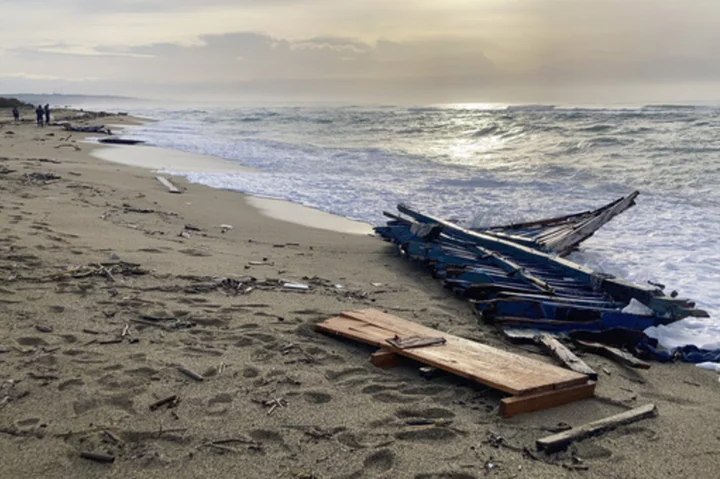
EU makes fresh attempt to overcome yearslong crisis over migrants
European Union interior ministers are making a fresh attempt to overcome one of the bloc’s most intractable political problems as they weigh new measures for sharing out responsibility for migrants entering Europe without authorization
2023-06-08 14:49
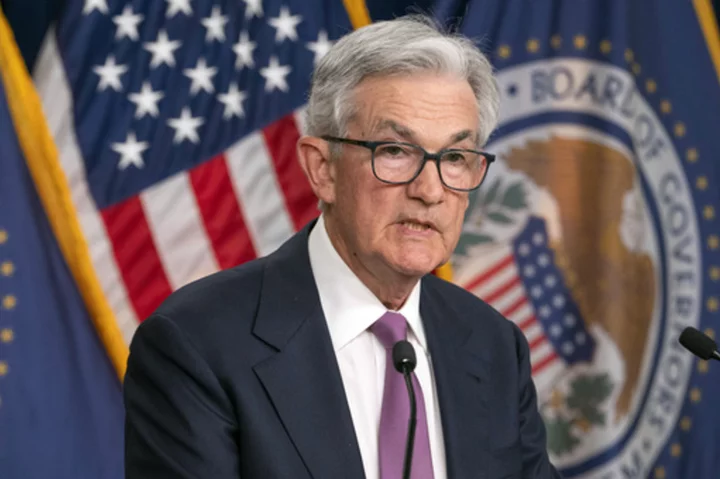
A Fed still wary of inflation is set to raise rates to a 22-year peak. Will it be the last hike?
Even after inflation has steadily eased this year, the Federal Reserve’s policymakers still think prices are rising too fast and are almost certain to lift their key interest rate by a quarter-point on Wednesday
2023-07-26 18:52

Offshore Yuan Seen Tumbling to New Low Against Dollar in China Selloff
Global investors have little confidence that China will succeed in shoring up its financial markets, predicting that mounting
2023-08-28 08:50
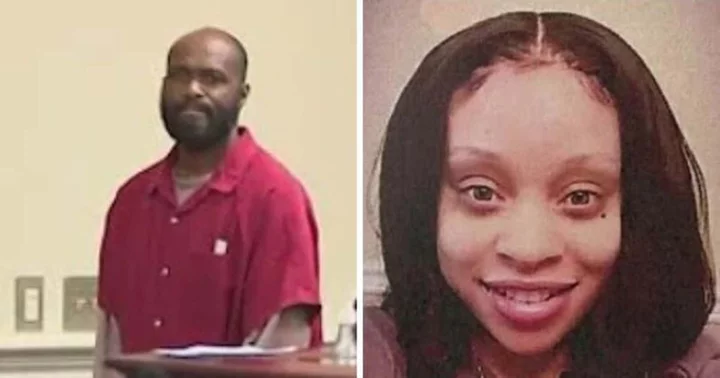
Who is Reginald Robertson? Georgia mom-of-3 Tiffany Foster's fiance charged with murder 2 years after her disappearance
Reginald Robertson, Tiffany Foster's fiance, was charged with theft on April 8, 2021, for allegedly moving her car after she was reported missing
2023-08-08 15:54

Trump, in campaign mode, attempts to back off abortion
Donald Trump never misses a chance to remind voters that he was the one to appoint three justices to the US Supreme Court who voted to ditch...
2023-09-29 14:27

Rival claims over Prince Harry, Meghan NY 'car chase'
Competing claims surfaced Thursday over Prince Harry and his wife Meghan's purported involvement in a "near catastrophic car chase" with...
2023-05-18 19:49
You Might Like...
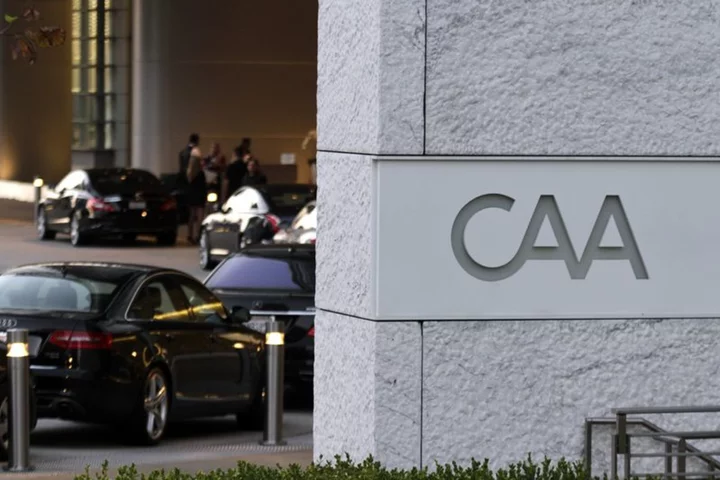
French billionaire Pinault seals deal for Hollywood agency CAA
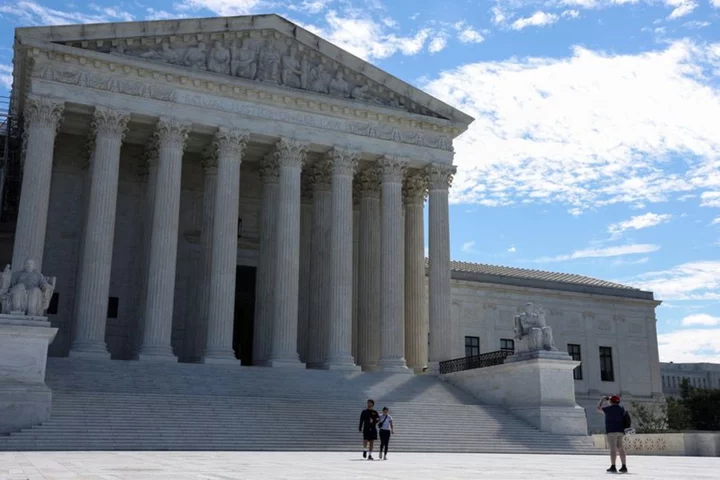
US Supreme Court's Thomas attended Koch network donor events -ProPublica

What is the Espionage Act that Trump is being investigated under?

Playground stabbing: French town holds gathering to support wounded children, families

Why does London crowd despise Logan Paul? WWE superstar says 'Money in the Bank ruined my life'

'Kanye 2.0!' Internet compares Kim Kardashian's daughter North West to her dad after she throws major shade at Pete Davidson

Pochettino's Chelsea loses again in Premier League. Spurs stay unbeaten with 2-2 draw at Arsenal
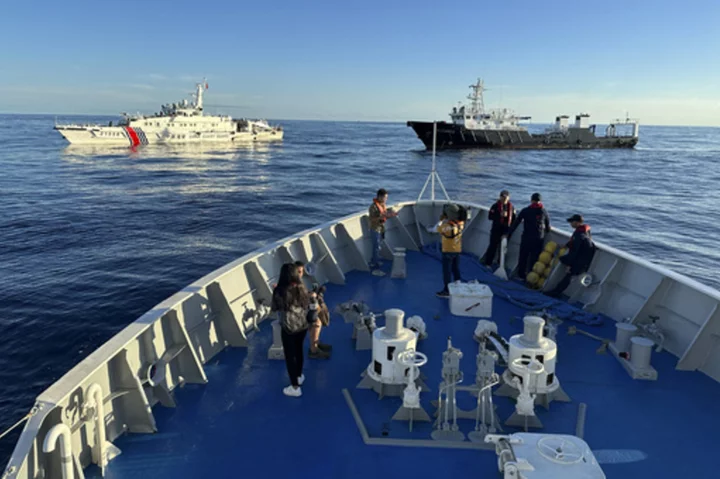
Dozens of Chinese ships chase Philippine vessels as US renews warning it will defend its treaty ally
